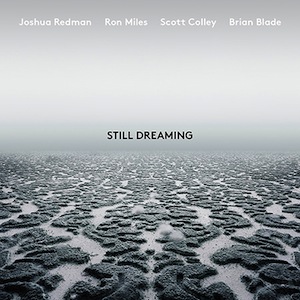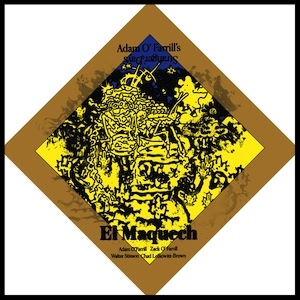Label: Screwgun Records, 2018
Personnel – Tim Berne: alto saxophone; Matt Mitchell: piano.
Last year, innovative pianist Matt Mitchell released Forage, a great solo album whose audacious material consisted exclusively of compositions by alto saxophonist Tim Berne, the man who had hired him in 2012 to play in the progressive Snakeoil band. The musical bond between the two men is so strong that a duo album was almost inevitable. Hence, Angel Dusk is now available and features eight tracks that pair Berne’s agile phrasing and resonant angularity with the perceptive, if intricate, tapestries of Mitchell.
The session opens with “Perception/Reception”, which gets strong forward momentum without being constantly busy. It shapes into a lyric reflection imbued with precise movements and emotional force. At some point, Berne embarks on circular crusades, having Mitchell's regularly paced chords darkening the mood for the time they last. Even remaining enigmatic until the end, there’s light in the sharp unison lines, which also endure on the subsequent short tune, “Not Too Two”.
“Exception/pest” flows with an instant liquidity. Mostly amiable in nature and exhibiting a classical-tinged artistry on the piano, the piece is temperate in its last section with a sort of rebelliousness that surfaces under the guise of explosive saxophone statements. Things are maintained hot on “Starfish Blues”, in which the swift interplay becomes massive and irreverent, and on the hyperactive “Petulance”, a recipient of ritualistic saxophone drives delivered with scorching trills in the mix and a complete command of the language. Denser harmonic progressions are adopted as accompaniment.
Both “Chance” and “Snail’s Pace” take their time to evolve, embracing a melodic parallelism that, even cerebral to a certain degree, is no less interesting or provocative than the sonic outbreaks. If the former piece goes from balmy to eloquent before returning to the written section, then the latter opens with Mitchell’s mystic rainbows of beautifully contrasting notes, proceeding in 'searching' mode after Berne jumps in with a combination of intimate melodicism and rhythmic agitation.
The constituent pieces of this collaborative work are extremely hard to separate in upbeat or downbeat. It’s much easier to associate their organic sounds with light and darkness due to the timbral coloring of the knotty textures. Berne and Mitchell sculpt and engrave with an absolute sense of anticipation and direction, making their set of explorations a stimulating listening experience.
Grade A-
Favorite Tracks:
01 - Perception/Reception ► 05 - Starfish Blues ► 06 - Chance








































